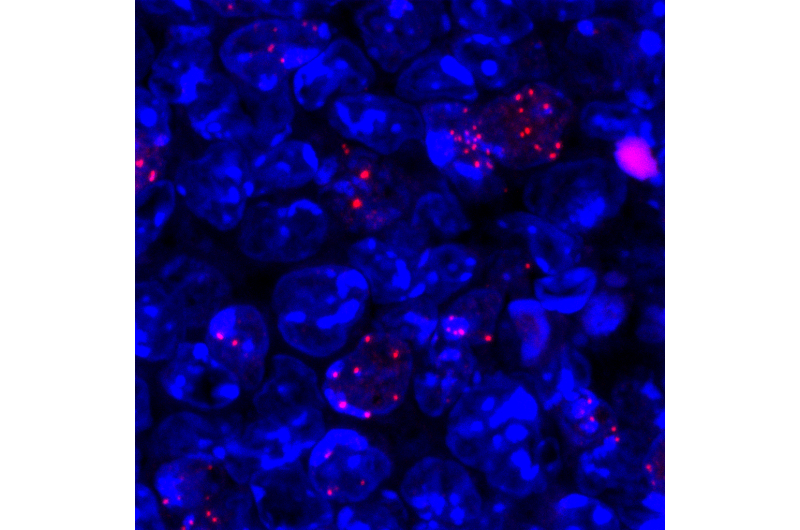Chimera viruses can help the fight against lymphomas

Researchers from Instituto de Medicina Molecular (iMM) Lisboa have created a chimera virus that allows the study of molecules to treat cancers caused by human herpes virus infection in mice models of disease.
There are several types of herpes virus able to infect humans, such as herpes simplex, chickenpox, cytomegalovirus, Epstein-Barr and Kaposi sarcoma herpesvirus. One of the main characteristics of herpesviruses is their ability to infect their hosts for life, and in a small percentage of these people, the development of cancer.
Cancers associated with Kaposi virus infection have an Achilles heel: Cell viability is directly dependent on the survival of the virus, which means that if the virus were eliminated, cancer cells would no longer proliferate, hence, the cancer would be cured.
In collaboration with a team from Harvard Medical School, researchers led by Pedro Simas (iMM) and Kenneth Kaye (Harvard) studied a protein of the Kaposi virus vital for maintaining infection. Without this protein, called LANA, the virus loses its ability to cause cancer.
The team found that when LANA is cloned into a virus similar to Kaposi, but which infects mice instead of humans, it preserves its functionality. This finding came as a surprise, since it was assumed that as a consequence of the evolutionary divergence between human and other animal viruses, the genes that code for LANA could not be switched.
However, the work now published in Plos Pathogens showed that LANA's functional mechanisms are preserved even though there are more than 60 million years of evolutionary divergence between the human Kaposi sarcoma herpesvirus and its rodent homologue.
These findings allowed researchers to create a chimera virus—a mouse virus with a human viral gene that can be used to test molecules that inhibit human LANA protein in an animal model of disease, treating not only human herpes virus infection but also its associated cancers. These molecules could hopefully be used in the future as drugs to treat Kaposi virus-associated lymphomas.
"In addition to Kaposi virus, the same experimental strategy to create chimera viruses, previously thought to be theoretically nonviable, can now be used for other viruses that use proteins similar to LANA, such as the Epstein-Barr virus, which infects greater than 90 percent of the world population or the human papillomavirus responsible for cervical cancers," said Pedro Simas.
More information: Aline C. Habison et al, Cross-species conservation of episome maintenance provides a basis for in vivo investigation of Kaposi's sarcoma herpesvirus LANA, PLOS Pathogens (2017). DOI: 10.1371/journal.ppat.1006555















